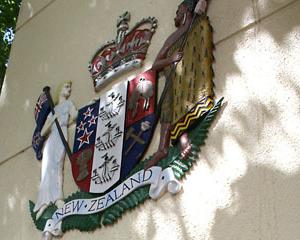Canadian-born Luke Ken Taborski (33), unemployed, had admitted 10 charges of possessing objectionable publications comprising more than 50 images of naked or semi-naked children and including 10 of young children in sexually explicit poses or engaged in sexual acts with male adults.
On each charge, Taborski was sentenced to nine months' jail, followed by six months' special conditions, with alcohol and drug assessments, counselling and treatment and other appropriate treatment and counselling programmes as directed.
Taborski's long hair was concealing his face as he entered the dock from the court cell area. He immediately turned his head away to avoid being photographed by an Otago Daily Times photographer in the courtroom. And he kept his face averted throughout the sentencing process. At one point, Judge Michael Crosbie asked if he was looking at him while being sentenced. Taborski said he was, that he could see the judge.
''So you probably have the same respect for the court as you have for young children, which is none at all,'' Judge Crosbie commented.
Crown counsel Craig Power told the court Taborski was arrested on August 8, 2012, on an unrelated matter. But police looked at his cellphone and saw pornographic images depicting children as young as 7 in sexually explicit poses involving male adults. The phone was examined under a Films, Videos and Publications Classifications Act search warrant and was found to contain a 2GB digital storage device (a micro SD card).
Further analysis revealed the card contained more than 50 images of naked or semi-naked children, including 10 sexually explicit images, some of which pictured sexual activity with infants.
Mr Power said Taborski appeared to indicate he had not viewed the material, which went against the fact he had the images in his possession. Aggravating features of the offending were the variety of acts depicted and that the act of possessing such images supported the abuse of children. Taborski had a long-standing alcohol problem and was found in possession of alcohol at the relevant time, Mr Power said.
Defence counsel Jim Takus said there was no connection between Taborski's offending and alcohol and drugs.
When asked by Judge Crosbie, the defendant denied having an alcohol problem.
The judge said it was to the defendant's credit that, having challenged the admissibility of the material, once the images had been formally classified, he pleaded guilty. The offending signified ''these children are victims'', the judge said.
It was not suggested Taborski had taken the photographs himself. But those who received them were part of worldwide market encouraging the victimisation of young children and the sexual abuse of such children, leading to horrific consequences for them in their future lives.
''Even passive viewing encourages the taking of such images,'' Judge Crosbie told Taborski.











